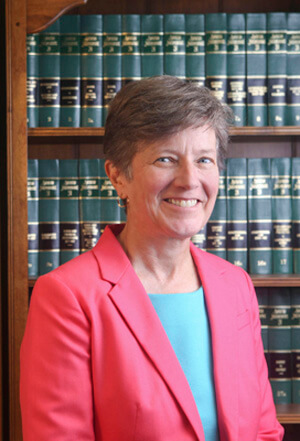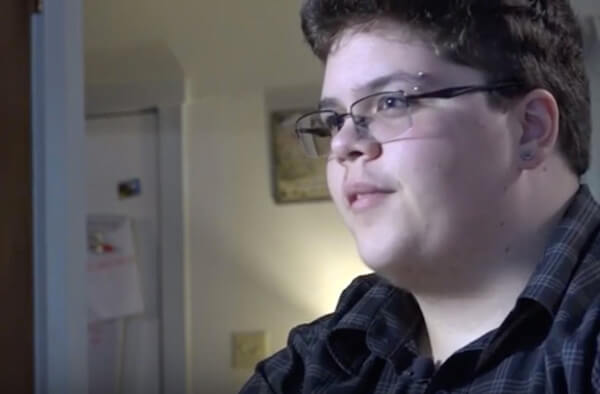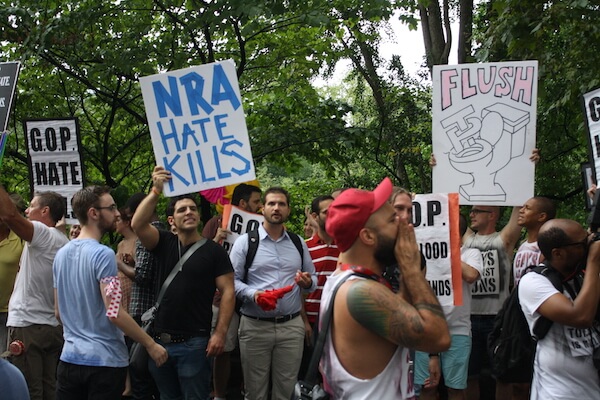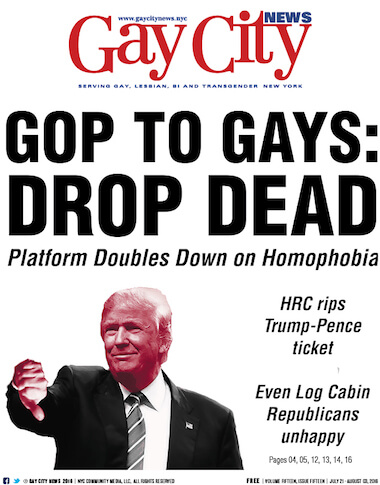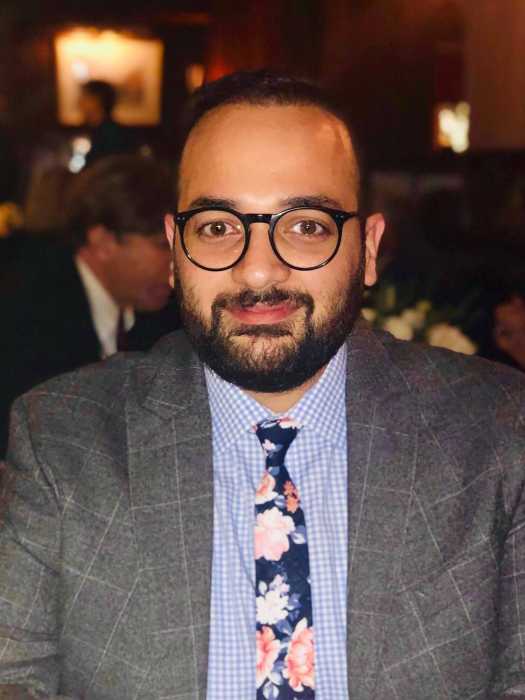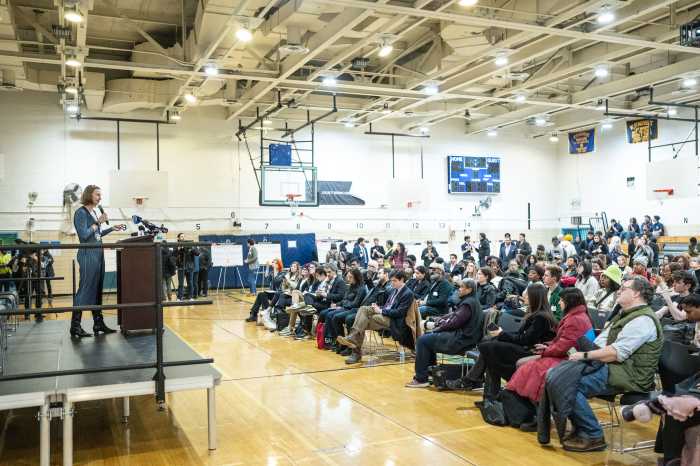GLAD's Mary Bonauto. | JOHN D. & CATHERINE T. MACARTHUR FOUNDATION
As the States of Ohio, Michigan, Tennessee, and Kentucky head to the US Supreme Court on April 28 to defend their policies barring marriage by same-sex couples and the legal recognition of such unions from other jurisdictions, one of their key arguments is that the question should not be settled by the courts but is instead the unique province of their states’ citizens.
Asked in an April 21 press briefing to respond on the issue of “who decides,” Mary Bonauto, the Civil Rights Project director at the Boston-based Gay & Lesbian Advocates & Defenders, showed off her skill at turning the opposition’s offensives to her advantage.
Stating her view that the matter of “who decides” is a question of “is it the government or is it the individual,” Bonauto said, “Under our case law, it is the individual.”
On both equal protection and due process grounds, she argued, state governments that bar equal access to marriage violate the constitutional rights of gay and lesbian individuals.
Both Bonauto and her co-counsel in representing the same-sex couples who brought suit in the four states, Washington-based Ropes & Gray attorney Doug Hallward-Driemeier, were careful and brief in opening remarks and in responding to just over a dozen questions from reporters. Of course when standing in front of the Supreme Court, where the nine justices hold all the cards in determining who has the floor at any given moment, their ability to be concise and crystal clear is vital.
The high court is hearing appeals by the plaintiffs from the four states, whose earlier victories in federal district courts were overturned on November 6 by the Sixth Circuit Court of Appeals. In her first appearance before the Supreme Court, Bonauto will argue on behalf of Michigan and Kentucky plaintiffs seeking the right to marry. Hallward-Driemeier, a veteran Supreme Court litigator, is representing couples from Tennessee, Ohio, and Kentucky seeking recognition of their marriages from other states.
Bonauto made history as the lead attorney in the 1999 Vermont Supreme Court case that led to the nation’s first civil union law and in the 2003 Massachusetts Supreme Judicial Court case that made that state the first to embrace marriage equality. Asked to reflect on the differences between 2003 and today, she noted that 12 years ago, there were many “skeptics” on the question of whether gay marriage was a winnable goal in the US. Today, she said, American public opinion is clearly on the side of marriage equality.
Bonauto, however, was careful to note that popular support for the right of same-sex couples to marry was not the key issue.
“The case does not stand on what public opinion is,” she said. “In the end, when we’re talking about the guarantees of equality and equal protection, it really doesn't matter.”
As the marriage equality movement has gained strength in recent years, its opponents have tempered their rhetoric, with many now saying it’s a question on which people of good will can disagree –– which is why, they argue, it should be left up to voters and their elected legislative representatives. Asked if they were willing to grant that disagreement on the issue is possible among fair-minded people, Bonauto demurred, saying the issue is a “legal” one, centered on whether the government is denying gay and lesbian citizens the equal protection of the law.
“That is our focus,” she said. “Not on judging people’s motives.”
As marriage equality rulings have multiplied across federal courts nationwide over the past 18 months, some have been decided on equal protection grounds, others on due process grounds. The thrust of the due process rulings have viewed the right to marry as a fundamental right, which can be abridged only for a compelling public purpose –– a test that governments barring same-sex marriage are hard-pressed to surmount.
When marriage bans are subjected to equal protection review, the courts must first determine whether distinctions based on sexual orientation are subject to heightened scrutiny, under which they are presumed unconstitutional unless the government can provide a compelling rationale, or to more deferential, rational basis review, in which the government need only supply some plausible reason for its policy. Should the Supreme Court find that sexual orientation claims must be reviewed using heightened scrutiny, its ruling could have profound implications down the road for other gay rights claims –– in employment or housing discrimination cases, for example.
It is significant, however, that some federal courts issuing equal protection rulings never even broached the question of the appropriate level of judicial scrutiny since they found marriage bans could not survive even the most lenient, rational basis review.
Asked whether they expected the court to rule on due process grounds or alternatively using an equal protection analysis, Bonauto said she believes both issues are involved and, in fact, “intertwined” in constitutional terms. Acknowledging that the high court’s review could have impact on other gay rights issues –– and that she and Hallward-Driemeier are prepared to address any such issues –– Bonauto said the primary issue at hand next week is marriage.
Hallward-Driemeier, who in arguing the marriage recognition issue will follow Bonauto’s presentation, said that if the underlying right to marry issue is settled “that pretty much ends the question.” Still, he noted that when the rationale put forward by states in denying recognition to legal marriages from elsewhere is examined and critiqued, the analysis “makes question one [Bonauto’s right to marry argument] even clearer.”
Hallward-Driemeier also addressed the historic role US Solicitor General Don Verrilli –– who represents the Obama administration before the high court –– will play next week in arguing in support of the same-sex plaintiff couples, saying it is “something to celebrate.”
Bonauto, wary perhaps of looking overconfident, sidestepped a question of whether she saw herself as an “underdog” or as “holding the upper hand” in next week’s argument, emphasizing, “We need to prepare for everything.” Hallward-Driemeier, echoed that assessment, but noted, in looking at Supreme Court precedents over the years –– on the fundamental right to marry and on issues of sexual orientation discrimination –– that “there is so much” that supports the arguments he and Bonauto will be making.
Throughout their questioning by reporters, both attorneys emphasized again and again the large number of legal advocates at work on marriage equality with whom they are collaborating in their preparations. Their words represented a grace note likely well appreciated by a good many attorneys who would have loved their own shot at history next week at the Supreme Court.

